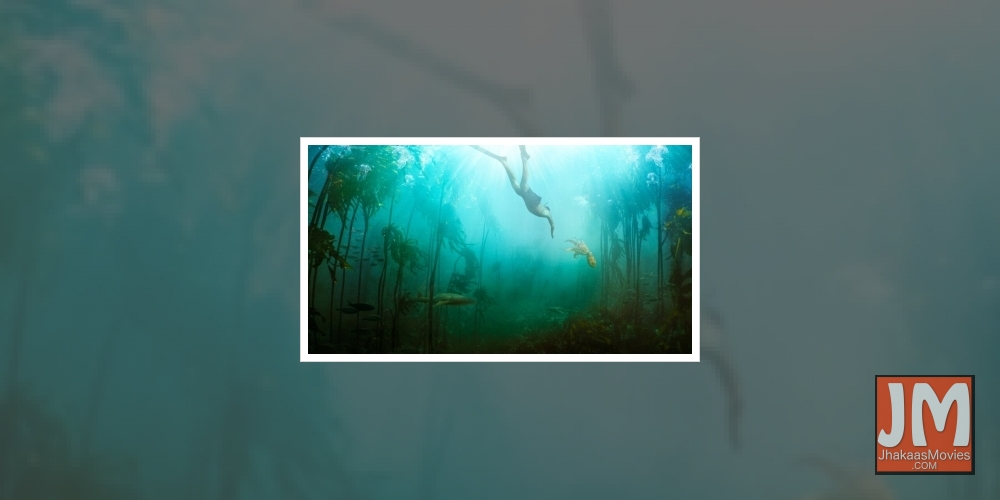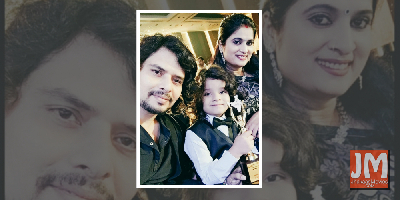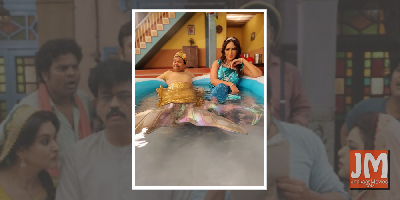 Aan Tiwari honoured with Best Child Actor award for Baal Shiv
Aan Tiwari honoured with Best Child Actor award for Baal Shiv Ghategi rahasymayi ghatnaye!
Ghategi rahasymayi ghatnaye! Amazon Prime Video unveils the 2021 Festive Line-up; brings a heady mix of Indian and International titles on the service
Amazon Prime Video unveils the 2021 Festive Line-up; brings a heady mix of Indian and International titles on the service Release: Music video of, Yeh Haalaath, from Mumbai Diaries 26-11
Release: Music video of, Yeh Haalaath, from Mumbai Diaries 26-11 Bhumi Pednekar feels she shares feel-good value with Akshay Kumar on screen
Bhumi Pednekar feels she shares feel-good value with Akshay Kumar on screen
Unusual true love story of a human and an octopus wins Oscar!

By S. Ravi
New Delhi, April 28: The heart-warming story of the human-octopus friendship My Octopus Teacher documentary made it to the hearts of the Oscar Jury as it won the Best Documentary at the 93rd Academy Awards at Los Angeles.
The documentary directed by Pippa Ehrlich and James Reed, brings on screen the true story of friendship between the film-maker and diver Craig Foster and an octopus, when he decides to explore an underwater kelp forest near Cape Town, South Africa. The film brings to light the unusual strong bond the two form.
The documentary had already indicated that it is a strong contender for the Oscar this year as it had won several festivals and critics' awards, besides winning the Bafta and Producers Guild awards for Best Documentary. In the Academy Awards the film of course faced tough competition from a line-up which included criminal justice system testimony Time, disability documentary Crip Camp, and corruption investigation Collective.
What made My Octopus Teacher charm the viewers, critics and jury was the rare story of bonding between a human being and a creature in the wild.
The documentary is a 2020 Netflix Original film.
The genesis
Foster, a South African filmmaker, took 10 years to make the footage used in My Octopus Teacher. According to Reuters it began as a personal video project by Foster to rekindle his connection with nature by observing an inquisitive female mollusc while free-diving near Cape Town.
In the film one gets to see how in 2010 Foster began free-diving in a cold underwater kelp forest at a remote location in False Bay, near Cape Town, South Africa. Located near Simon's Town on the Cape Peninsula, it is exposed to the cold Benguela current of the Atlantic Ocean.
The unusual bonding
Foster started to document his experiences and, in course of time, he chanced upon a curious young octopus that got his complete attention. Deciding to continue to visit her den and tracking her daily movements for a year, he was keen to win her trust.
In course of time, the two formed a bond where she plays with Foster and allows him into her world to see how she sleeps, lives, and eats. Foster in the film goes on to describe the impact on his life of his relationship with the octopus.
The documentary captures beautifully Foster's growing intimate relationship with the octopus as he follows her around for nearly a year. The audience get to see the octopus defending herself against pyjama sharks. She loses an arm in one such attack and retreats to her den to recover, regenerating the arm slowly over a period of three months.
In another attack incident, she shows remarkable improvisation as she displays her creativity to survive, including sticking on the shark's back.
After mating with a bigger octopus and producing a large number of eggs, she dies naturally while tending for her eggs and a shark takes her body away.
Foster describes the effect of this mentorship that the octopus provided him with as teaching him a lesson on the fragility of life and humanity's connection with nature. This translated to Foster creating a deeper bond with his son as his son develops as a diver and marine life student.
Takeaways
According to Foster his relationship with the octopus taught him about life's fragility and our connection with nature, and even helped him become a better father.
As per the Reuters, Foster said: "The really strange thing is that, as you get closer to them, you realize that we're very similar in a lot of ways. I had to have a radical change in my life. And the only way I knew how to do it was to be in this ocean with her."
Grieving over the loss of his dear friend, Foster, showed his 3,000 hours of footage to fellow diver and director Pippa Ehrlich who shot additional material of the landscape beneath the cold waters of False Bay near Foster's home.
There were moments where I was editing and I got emotional in certain scenes. You know, when she loses her leg. The final scene from playing with the fish to her death. I think I cried while I was cutting that," remarked Ehrlich who co-directed the documentary with James Reed.
Highlighting the impact of the film, Ehrlich reveals: "To receive thousands and thousands of emails from people saying that they've been touched ... saying that they'll never eat octopus again."
"The way that it's been received has been incredibly empowering. And yeah, it makes you believe in yourself," she adds.
(This content is being carried under an arrangement with indianarrative.com)
Tags: Cinema, Showbiz, National, INDIANARRATIVE








